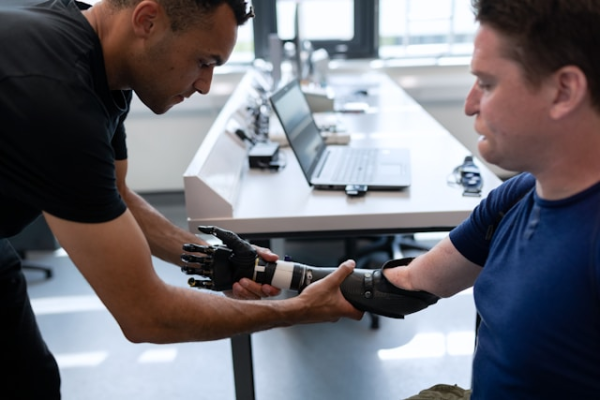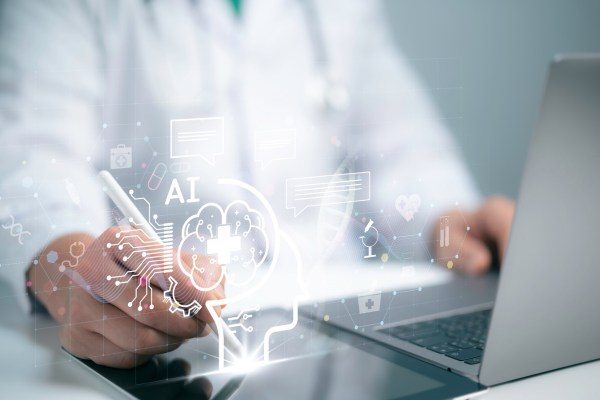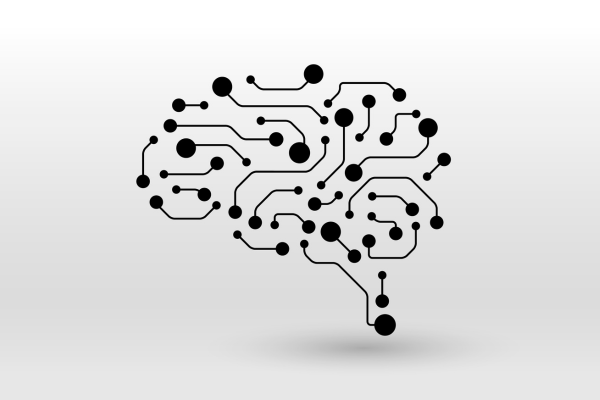How AI Will Improve Diagnostic Imaging
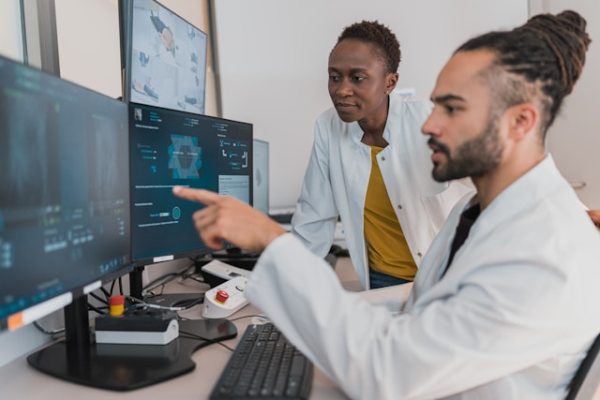
How AI Will Improve Diagnostic Imaging
Diagnostic imaging is an innovative field in modern medicine, providing unique visual insights that guide the diagnosis, treatment planning, and monitoring of countless conditions. As technology such as artificial intelligence (AI) technology advances, its integration into diagnostic imaging looks to bring a transformative shift in healthcare. In this article, we’re going to look at the multifaceted ways AI is set to enhance diagnostic imaging, from improving accuracy and efficiency to pioneering new diagnostic methods.
What is Artificial Intelligence?
AI is a branch of computer science that aims to create systems capable of performing tasks that would typically require human intelligence. These tasks include learning, reasoning, problem-solving, perception, and understanding language. The healthcare industry as a whole stands to benefit greatly from AI, but diagnostic imaging, in particular, can be dramatically improved in a few areas.
Two key aspects of AI in the context of diagnostic imaging are machine learning (ML) and deep learning (DL). ML is a subset of AI where algorithms use statistical methods to improve their performance at a task with experience. DL uses layered neural networks to analyse various factors of data, mimicking the way human brains operate. This capability allows DL models to recognise complex patterns in large datasets, making it particularly useful for analysing medical images.
Revolutionising Accuracy and Precision
One of the most significant ways that AI looks to improve diagnostic imaging is by increasing the accuracy and precision of diagnoses. AI algorithms, trained on vast datasets of imaging scans, can identify patterns and anomalies that may be subtle or invisible to the human eye. For instance, for diagnostic radiologists, AI can differentiate between benign and malignant tumours with high precision, reducing the rates of both false positives and false negatives. This capability not only improves patient outcomes by ensuring timely and appropriate treatment but also alleviates the psychological impact of uncertain diagnoses.
Reducing Diagnostic Errors
Diagnostic errors are a major concern in healthcare, with serious implications for patient safety. AI's ability to consistently analyse images without fatigue or bias offers a promising solution to this. By providing second opinions, AI can help radiologists and other specialists catch potentially overlooked details, in turn reducing the likelihood of misdiagnoses and contributing to safer patient care.
Enhancing Efficiency and Workflow
AI's ability to quickly process and analyse large volumes of imaging data can drastically improve operational efficiency in healthcare settings. This efficiency is particularly important in emergency situations where time is of the essence, such as in the diagnosis of stroke or traumatic injuries. AI can help by prioritising urgent cases and identifying critical conditions from scans, enabling faster decision-making and treatment initiation.
Automating Routine Tasks
Beyond diagnostic support, AI can automate routine imaging tasks, such as organising and labelling scans, measuring anatomical structures, and tracking changes over time. This automation frees healthcare professionals to focus on more specialist and nuanced aspects of patient care, improving both the quality of care and job satisfaction.
Expanding Accessibility to Diagnostic Services
AI has the potential to democratise access to high-quality diagnostic imaging, particularly in underserved or remote areas. By enabling non-specialists to obtain and interpret accurate imaging results, AI can bridge the gap in healthcare disparities. Mobile health units equipped with AI-driven imaging devices could bring advanced diagnostic capabilities to regions lacking specialised medical services, significantly expanding the reach of life-saving diagnostics.
Reducing Healthcare Costs
The efficiency and automation afforded by AI could also lead to significant cost savings in healthcare. By streamlining the diagnostic process and reducing the need for repeat scans or unnecessary procedures, AI can help contain the escalating costs of medical imaging. These savings could then be redirected towards other critical areas of patient care or used to lower the financial burden on patients.
Pioneering New Diagnostic Methods
AI is not just enhancing existing imaging techniques; it's also at the forefront of developing novel diagnostic methods. For example, AI algorithms can integrate data from multiple imaging sources, such as MRI, CT scans, and X-rays, to create more comprehensive and detailed pictures of health conditions. This holistic approach could unveil new insights into complex diseases and how they interact with different parts of the body, improving both diagnosis and treatment.
Personalised Medicine
AI's advanced analysis capabilities can also contribute to the rise of personalised medicine. By correlating specific imaging findings with genetic information and other health data, AI can help tailor treatment plans to the individual patient's unique condition. This tailored approach promises to improve treatment efficacy and patient outcomes, marking a shift from a one-size-fits-all approach to healthcare.
Overcoming Challenges With AI in Diagnostic Imaging
Despite its potential, the integration of AI into diagnostic imaging is not without challenges. Concerns about data privacy, security, and the need for robust regulatory frameworks highlight the potential issues raised by AI. Ensuring the accuracy and reliability of AI systems across diverse populations and conditions is also very important to avoid biases that could affect diagnostic outcomes.
The ethical implications of AI in healthcare, including the impact on employment for radiologists and other imaging professionals, must also be carefully considered. Continuous education and training, alongside the development of new roles in AI oversight and management, will likely need to become the norm to integrate AI into healthcare effectively.
Unlocking the Future of Diagnostic Imaging With AI
AI's impact on diagnostic imaging is poised to be revolutionary, offering improvements in accuracy, efficiency, accessibility, and the development of new diagnostic methods. As this technology evolves, it promises to enhance many aspects of healthcare. However, realising these benefits while navigating the challenges will require an adaptable team of healthcare professionals.
If you want to keep pace with the advancements in diagnostic imaging, then working as a locum could be the perfect solution. At Globe Locums, we can find you suitable diagnostic imaging roles and specialisms that suit your career development. To find out more, please contact our team at Globe Locums today, or view our latest vacancies.
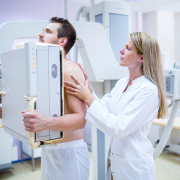
Latest Radiography Jobs
We currently have a variety of locum and permanent vacancies across the UK and Ireland


